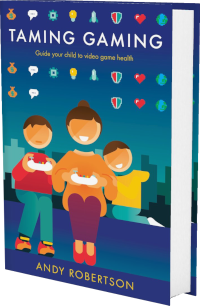 Android
Android iOS
iOS Mac
Mac Switch
Switch Wii
Wii Wii U
Wii U PC
PC PS4
PS4 PS5
PS5 Xbox One
Xbox One Xbox X|S
Xbox X|SWe've documented 18 accessibility features for The Case of the Golden Idol, including Low Pressure, No Quick Reactions, No Button Combos, No Repeated Pressing and No Holds. Its accessibility is strongest in Controls and Visual but it also has features in Getting Started, Reading and Audio to reduce unintended barriers.
This report is created with input from accessibility experts and the player community to help people find games that have the accessibility features they require. Once you have found potential games on the database, there are excellent specialist accessibility sites that offer in-depth reviews to guide your purchasing decisions.
Our accessibility examiner, Ben Kendall, first checked The Case of the Golden Idol accessibility 7 months ago.
 Accessibility Notes
Accessibility Notes
Much of the game is reliant on text, which is high in contrast but often very small. There are occasional flashing effects, such as lightning bolts, but they appear somewhat slowly and aren't overly bright. Still, they are important to be aware of. Some areas are quite dark and subsequently low in contrast.
 Game Details
Game Details
Release Date: 13/10/2022, updated in 2023
Out Now: PC, Switch and Web
Skill Rating: 11+ year-olds
Players: 1
Genres: Point-and-Click, Sequencing (Brain Game and Puzzle)
Accessibility: 18 features
Components: 2D Side-On and Pixels
Developer: Color Gray 7 (@ColorGray7)
Costs: Purchase cost, In-Game Purchases and In-Game Pass
 Controls
Controls
We've documented 5 accessibility features for Controls in The Case of the Golden Idol which deal with how you control the game, different options for alternative inputs and whether you can remap these settings to suit your needs.
Gamepad
Can play with the following:
Multiple Buttons & Single Stick: Can play with multiple buttons and a stick.
Mouse And Keyboard
Can play with the following:
Mouse Alone: Can play with just the mouse/mouse-button/mouse wheel.
Button Combinations
Specific button operation required to play
Holding Down Buttons Optional: Holding down buttons for prolonged periods (a second or more) is not required or can be switched to toggling the action on and off. This is in addition to the movement stick/button which is not considered a hold for this purpose.
Rapid Repeated Pressing Optional: Quick, repeated button pressing (more than 2 times a second) is not required, can be skipped or switched to holding a button to trigger a repeated action.
No Simultaneous Buttons: Only one button or key required at a time, in addition to direction stick(s).
Similar Games With More Accessibility Features for Controls
If you want to play The Case of the Golden Idol, but it doesn't offer the Controls accessibility features you require, these similar games extend the Controls accessibility:
- Brok the Investigator (8 Controls Features)
- Monorail Stories (7 Controls Features)
- The Magister (7 Controls Features)
- Six Cats Under (6 Controls Features)
 Difficulty
Difficulty
We haven’t documented any accessibility features for Difficulty in The Case of the Golden Idol which deal with how you can adjust the challenge of play, and whether this is locked once chosen or can be adjusted as you play. The following games are similar to The Case of the Golden Idol, and offer accessibility features for Difficulty:
- Brok the Investigator (2 Difficulty Features)
- Monorail Stories (2 Difficulty Features)
- Math Makers (1 Difficulty Feature)
- Return to Monkey Island (1 Difficulty Feature)
 Getting Started
Getting Started
We've documented 3 accessibility features for Getting Started in The Case of the Golden Idol which deal with what support is offered to get started with the game. This includes customising the experience when you first open the game via any onboarding processes it provides as well as tutorials and other assistance when you first start playing.
Assistance Getting Starting
These features aid your play of the game in terms of cognitive load on learning controls, dealing with pressure and coping with the environment and challenges.
Reaction-Time Not Critical: Individual game actions don’t need quick reactions, or there are settings to lower the requirement for quick reactions. This means you don't need to quickly press a button in response to an on-screen prompt, target a fast-moving target or skillfully complete a scenario against the clock.
Low Pressure: Game tasks aren't time-limited or there's a low-pressure mode. This avoids the pressure of being put on the clock for overarching missions, or failing tasks because you didn't reach a destination in time.
No Jump Scares: No sudden loud noises or popping-up scary visuals that unexpectedly appear without warning, or the option to disable them.
Similar Games With More Accessibility Features for Getting Started
If you want to play The Case of the Golden Idol, but it doesn't offer the Getting Started accessibility features you require, these similar games extend the Getting Started accessibility:
- Brok the Investigator (12 Getting Started Features)
- Growbot (8 Getting Started Features)
- Röki (7 Getting Started Features)
- Monorail Stories (6 Getting Started Features)
 Reading
Reading
We've documented 3 accessibility features for Reading in The Case of the Golden Idol which deal with how much reading or listening comprehension is required, how well the game provides visual and audible access to the text and whether subtitles and captions are a good fit for purpose.
Reading Level
How much reading is required to play the game's main path or story and how complex the language is. The presence of voiced characters doesn't reduce this requirement, as it's recorded as a separate datapoint.
Moderate Reading: Moderate reading required. The quantity and complexity of reading are at a level that a high school student (14-year-old) would appreciate.
Subtitles
All Speech Subtitled (Or No Speech In Game): All spoken content has subtitles, or there is no speech in the game. This means there is no requirement to hear spoken dialogue or narrative to play the game.
Captions
Speaker Indicator: Textual captions indicate who is speaking (or there is only ever one person speaking). This can also be indicated visually in the game with character icons or placing text in speech bubbles next to the person speaking.
Similar Games With More Accessibility Features for Reading
If you want to play The Case of the Golden Idol, but it doesn't offer the Reading accessibility features you require, these similar games extend the Reading accessibility:
- Brok the Investigator (7 Reading Features)
- Monorail Stories (7 Reading Features)
- Return to Monkey Island (7 Reading Features)
- Wayward Strand (7 Reading Features)
 Navigation
Navigation
We haven’t documented any accessibility features for Navigation in The Case of the Golden Idol which deal with how the game provides guidance and assistance to navigate its worlds. These are only for games that have traversal and exploration in 2D and 3D spaces. The following games are similar to The Case of the Golden Idol, and offer accessibility features for Navigation:
- Brok the Investigator (7 Navigation Features)
- The Magister (6 Navigation Features)
- Monorail Stories (5 Navigation Features)
- Wayward Strand (4 Navigation Features)
 Visual
Visual
We've documented 5 accessibility features for Visual in The Case of the Golden Idol which deal with how you can adjust the visuals to suit your needs, and offer additional information if you can't hear the game.
Visual Distractions
No Screen Shake: No screen shake effect or it is included but it can be disabled. This includes the absence of screen shake for dramatic effect as well as to indicate hits on a target.
No Busy Backgrounds: No distracting backgrounds or you can make them static or blank. This includes the absence of other movement elements in the background that might distract or confuse the action. Where foreground contrast is high, this includes games with some movement in the background that doesn't make it overly difficult to distinguish what is happening.
Audio Cues for Visual Events
Audio Cues for Visual Events: Audio is provided to indicate visual events. Game events or progress highlighted by visual icons, effects or animations are also accompanied by audio to signify that progress. This is useful for blind players.
Motion Sickness Friendly
Motion Sickness Friendly: Doesn't have 3D movement elements that may trigger motion sickness, like motion blur, depth of field and field-of-vision. Or includes the ability to disable motion blur, depth of field and field-of-vision effects.
Colour Options
Colour Blind Friendly: Game doesn’t rely on colour or can switch to colour blind friendly mode with double coding or similar way to avoid colour dependance.
Similar Games With More Accessibility Features for Visual
If you want to play The Case of the Golden Idol, but it doesn't offer the Visual accessibility features you require, these similar games extend the Visual accessibility:
- Brok the Investigator (9 Visual Features)
- The White Door (8 Visual Features)
- Röki (8 Visual Features)
- Verne: The Shape of Fantasy (6 Visual Features)
 Audio
Audio
We've documented 2 accessibility features for Audio in The Case of the Golden Idol which deal with how you can adjust the audio of the game and whether audio cues compensate for aspects of the game that are hard to see.
Adjustable Audio
Balance Audio Levels: Set music and game sound effects separately. This enables you to select your preference as well as ensure critical game sounds aren't obscured by other audio.
Play Without Hearing
Play Without Hearing: No audio cues are necessary to play the game well.
Similar Games With More Accessibility Features for Audio
If you want to play The Case of the Golden Idol, but it doesn't offer the Audio accessibility features you require, these similar games extend the Audio accessibility:
System Accessibility Settings
In addition to the accessibility features provided in the game, you can also use system-wide accessibility settings:
Nintendo Switch
Nintendo Switch has some built-in features, including a lockable zoom, that can be used on all games.
PC
Windows has extensive accessibility features. Some, like colour correction, work with games. Lots of accessibility software can be used with PC games, from voice recognition to input device emulators.
Read more about system accessibility settings.
Accessibility Report supported by VSC Rating Board, PlayabilityInitiative and accessibility contributors Ben Kendall












